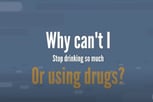Willpower. That is all it takes to end an addiction according to a large portion of mostly uninformed individuals in our society. The truth is that recovery from drug and alcohol addiction requires peer support, professional guidance, family backing and often a residential program.
Regretfully, of the estimated 22.7 million individuals aged 12 or older who need treatment for an illegal drug or alcohol abuse problem, only 2.5 million actually receive treatment at a specialty facility. The rest of the population goes untreated largely due to unavailable funds.
This lack of affordable treatment for addiction can only be described as tragic.
Primary Barriers
There are several reasons for the huge gap between the demand for help and the supply of reasonably priced services. Here are some of its leading causes:
- Weak Insurance Coverage: The cost of rehabilitation, especially with in-patient facilities, is often prohibitive for those on a limited income and rarely covered by insurance policies. Insurance companies frequently do not classify addiction as a disease and so the “remedies” are not covered. Also, addicted individuals often cannot afford even basic health care and are even less able to afford the cost for treatment on their own.
- Lack of Government Funding: State-sponsored programs are those facilities targeting people who do not have a quality health insurance plan or cannot afford to personally pay for addiction treatment. Two-thirds of all treatment programs are non-profit programs funded by government grants, but the grant money is limited and programs are forced to put patients on a waiting list until they get more money.
- Limited Space: Low-priced treatment centers have limited space and many who are searching to end their addiction actually end up being put on a waiting list, only returning to drug abuse while their entry in to affordable rehab is delayed. If a person has to wait even a few days, they may find it impossible to abstain from drugs. When someone requires assistance for their addictions, they need it right away. Putting someone on a waiting list often means they never receive rehabilitation because they simply disappear and do not return for help.
- Shortage of Professionals: There is also a shortage of certified and trained health providers. According to the PEW report, “Between now and 2020, the addiction services field will need to fill more than 330,000 jobs to keep pace with demand, of which more than half are the result of people retiring and switching to other occupations .”
Other Options
There are existing options for reasonably priced addiction treatment and some new options that may help bridge the gap in entering inexpensive programs. Substance Abuse and Mental Health Services Administration (SAMHSA) provides a database of free substance abuse centers to lend a hand to those who need help but have a limited income. The caveat is that too often these programs are filled to capacity.
Charitable organizations such as the Salvation Army provide options for residential housing, work, group and individual therapy. It is also possible to find religious communities that offer rehabilitation with trained professionals on-site at no charge such as Beit T’Shuvah in Los Angeles. For these options to be practical for addicts, there must be a strong motivation to search for assistance.
Finally, there are new funding grants and laws aimed to expand insurance coverage for substance abuse treatment. The government has announced a plan to combat the opiate epidemic, calling for $133 million in new spending. Also, the new Affordable Care Act requires that insurance plans include substance abuse and mental health treatment as essential benefits. These are all steps in the right direction, but unfortunately, these plans often limit the number of days a person can remain in rehab and may not pay for additional treatment if the addict relapses.
Finding affordable recovery program should be considered a serious public health issue. Struggling with addiction on a limited income is complicated and overwhelming. It may appear hopeless and out of reach when you are trying to find low-cost treatment options to combat your drug or alcohol addiction, but there are options for economical rehabilitation services. The search just requires unwavering persistence, determination and motivation, and for the addict and their loved ones to never give up.
If you or someone you know is seeking help from addiction, please visit our directory of affordable treatment centers or call 866-606-0182 to start the path to recovery today.








